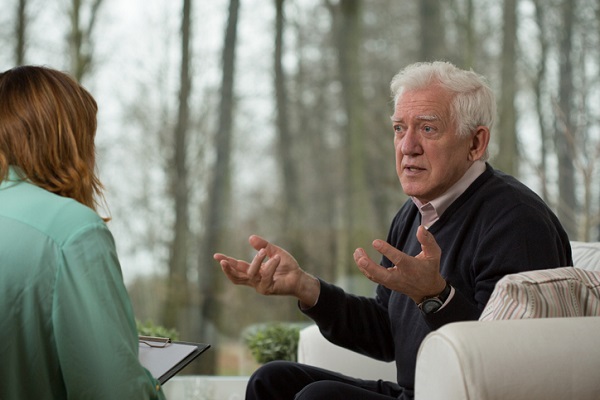
Dialectical Behaviour Therapy (DBT) is a form of behavioural therapy designed to help clients using strategies based around acceptance, change, mindfulness, and problem-solving. It is often used to help people with borderline personality disorder (BPD), as well as those with substance misuse issues, suicidal thoughts, issues with self-harm, and even eating disorders (May, Richardi, & Barth, 2016).
The technique’s goal is to aid these clients in building skills with which to regulate their emotions regarding certain situations. Often these situations are ones based around interpersonal relationships, and clients need to learn mechanisms to cope with them to foster positive change. This can be done through individual and group therapy sessions on a weekly basis, as well as through homework assignments (Grohol, 2019).
Here are some facts about DBT and its effects.
How DBT Became a Part of Counsellor Therapist Training
Dialectical behaviour therapy was first developed by psychologist Marsha M. Linehan, based on Linehan’s own struggles with borderline personality disorder and suicide attempts, as well as her desire to help those who had repeatedly attempted suicide themselves (Carey, 2011). Borderline personality disorder is often characterized by a fear of abandonment, turbulent relationships, self-destructive behaviour, unstable sense of identity, and impulsivity (May, Richardi, & Barth, 2016). Following a spiritual experience Linehan had in 1967, she started developing DBT after studying literature about treatments for other mental illnesses such as depression and anxiety, eventually publishing the book Cognitive-Behavioral Treatment of Borderline Personality Disorder in 1993 (“Dialectical Behavior Therapy (DBT)”, 2018).
Linehan formed the concepts of dialectical behaviour therapy by working with those who were either suicidal or who had BPD, borrowing components of other types of therapy (Carey, 2011). With this, she developed DBT with an emphasis on techniques like change and acceptance, as a means of helping both the client and therapist create less of an adversarial relationship and a way to move the process forward (“Fundamentals of Dialectical Behaviour Therapy”, 2013). Studies during the ‘80s and ‘90s from the University of Washington, where Linehan worked, started showing how suicide attempts and hospital stays among those with BPD had gone down, and that clients were more likely to remain in therapy (Carey, 2011).

Dialectical Behaviour Therapy and its Various Techniques
One of the central ideas behind DBT is that, in certain interpersonal situations, people can see their arousal levels elevate higher and faster than they normally would. In addition, these levels can take longer to return to normal. Since those who have BPD are more likely to experience these effects, DBT serves as a mechanism through which clients who have this mental illness can cope with emotional swings (Grohol, 2019).
As those taking counselling therapist courses will learn how to assist clients, it’s worth noting that the approach behind DBT is not only cognitive-based, but is also based around support and collaboration. Its aim is to have the counselling therapist work collaboratively with the client by identifying and enhancing personal strengths, as well as challenging unhealthy and negative thoughts and beliefs (Grohol, 2019).
DBT sessions will typically involve one-on-one psychotherapy where the counsellor and client strive to enhance social skills and trauma management, as well as go over troublesome situations in the latter’s life over the past week, with self-harming behaviours taking priority (Grohol, 2019). Oftentimes, dialectical behaviour therapy also involves weekly group therapy sessions, where a therapist leads the group through skills based around DBT’s four core modules (May, Richardi, & Barth, 2016).

DBT Is Divided into Four Modules, Each with a Distinct Purpose
Students in counsellor therapist training should know that the structure of dialectical behaviour therapy is based around four modules (Grohol, 2019). The first is mindfulness, a concept originating from Buddhism that focuses on “what” and “how” skills. “What” skills consist of Observe, Describe, and Participate (how to observe one’s personal environment without judgment, and better understand it to be fully engaged in situations without overthinking), while “how” skills are based around the concepts of Non-judgmentally, One-mindfully, and Effectively (to think based on facts rather than judgments, and maintain focus on one specific thing) (May, Richardi, & Barth, 2016).
The second module is interpersonal effectiveness, which is based around strategies for improving interpersonal relationships, as well as how to handle interpersonal conflict without endangering those relationships (Grohol, 2019). DBT’s third module is distress tolerance, which focuses on skills for coping with painful and distressing situations through acceptance and tolerance without judgment (Grohol, 2019). Lastly, emotion regulation is a module where clients learn how to better manage their emotions (Grohol, 2019). Through this approach, clients can work towards constructive behaviours and thought patterns.
Are you interested in enrolling in a counselling therapist college?
Contact Rhodes Wellness College to learn more.
Works Cited
May, J. M., Richardi, T. M., & Barth, K. S. (2016, March 08). Dialectical behaviour therapy as treatment for borderline personality disorder. Retrieved from https://www.ncbi.nlm.nih.gov/pmc/articles/PMC6007584/
Grohol, J. M. (2019, June 19). An Overview of Dialectical Behavior Therapy. Retrieved from https://psychcentral.com/lib/an-overview-of-dialectical-behavior-therapy/
Carey, B. (2011, June 23). Expert on Mental Illness Reveals Her Own Fight. Retrieved from https://www.nytimes.com/2011/06/23/health/23lives.html
Dialectical Behavior Therapy (DBT). (2018, June 13). Retrieved from https://www.goodtherapy.org/learn-about-therapy/types/dialectical-behavioral-therapy
Linehan, M. M., Comtois, K. A., Murray, A. M., Brown, M. Z., Gallop, R. J., Heard, H. L., … Lindenboim, N. (2006, July 1). Two-year randomized controlled trial and follow-up of dialectical behavior therapy vs therapy by experts for suicidal behaviors and borderline personality disorder. Retrieved from https://www.ncbi.nlm.nih.gov/pubmed/16818865
Fundamentals of Dialectical Behaviour Therapy. (2013, December 30). Retrieved from https://www.aipc.net.au/articles/fundamentals-of-dialectical-behaviour-therapy/









